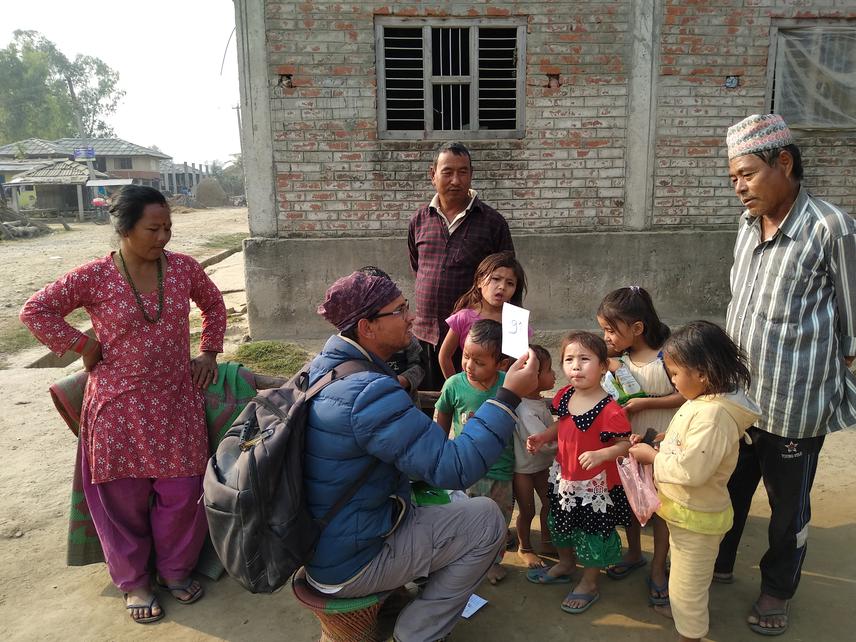Hem Bahadur Katuwal
Other projects
30 Jun 2020
Globally Threatened Lesser Adjutant in Lowland Nepal: Distribution, Breeding Ecology, People’s Attitude and Education Outreach Programmes
Birds are one of the main drivers of ecosystem services with social and cultural significance. In Nepal more conservation activities are practiced inside the protected areas, however, the current practice doesn’t support bird conservation outside the protected areas. Therefore, I aim to find the farmers’ existing knowledge and their attitudes towards farmland bird conservation outside the protected areas of Nepal. In addition, the result of this study and the activities such as conservation education programmes to farmers and school children will encourage the newly established local government to develop eco-friendly policies for long-term bird conservation in Nepal.

Awareness program to farmers and children by showing farmland bird photo.
Birds are one of the ecological service providers in the farmlands. The farmland lies outside the protected areas system and its heterogeneities support many threatened bird species such as Sarus Crane (Antigone antigone), Lesser Adjutant (Leptoptilos javanicus), Yellow-breasted Bunting (Emberiza aureola), Asian Woollyneck (Ciconia episcopus) etc. But their population are rapidly declining due to collection of eggs and chicks by children, excessive hunting and illegal trade, destruction of nests, chemical fertilizers, and intensive agricultural practices. All these activities are occurring due to poor conservation education in local people/farmers. So there is immediate need of conservation activities to save bird species in farmlands.
The conservation of the farmland birds entirely depends on existing knowledge and attitude of farmers towards them because government’s conservation policies have become less influential to private landowners. However, there are very limited studies to address farmer’s attitudes and knowledge towards bird conservation. Currently, this study provides the baseline information about these issues. So this project is based on four districts of central Nepal (Chitwan, Parsa, Sarlahi and Dhanusa) to gather empirical data on the farmers’ existing knowledge and their attitudes towards the farmland bird communities. Semi-structured interviews will be performed to know perception of farmers towards the farmland bird identifications; their ecology and behaviour, knowledge on existing laws and policies about the threatened birds; their knowledge on bird’s role in ecosystem balance etc. Besides these, farmland bird hunting and illegal trade practices will be studied in details. In addition, conservation education programs will also be carried out to farmers and school children to develop their positive attitudes towards bird communities. Finally result sharing workshops will be carried out with the local people and local government to discuss about the current knowledge and attitudes of farmers towards farmland bird communities in central lowland Nepal. The project will help to develop site-specific conservation strategies for farmland bird communities to concerned authorities.